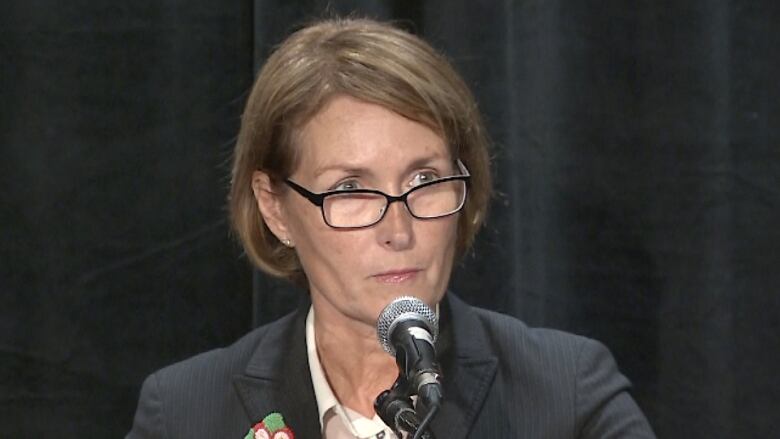Hundreds of B.C. foster children victims of sexualized violence
B.C. child advocate says Indigenous girls are most at risk

At least 233 cases of sexualized violence againstyoung people in the care of the province of B.C. have been been reported since 2011, according to a report from B.C.'s representative for children and youth.
Mary Ellen Turpel-Lafond said the actual number of victims is probably much higher, because many cases go unreported.
"These are disturbing numbers when you consider that we are talking about young people who in many cases are already traumatized, who can no longer live with their families, and whose protection is the responsibility of the government," Turpel-Lafond said.
"Clearly, there is an urgent need to better prevent and to respond more appropriately to sexualized violence against children and youth in care particularly when it comes to Aboriginal girls."
The report titledToo Many Victims:SexualizedViolence in the Lives of Children and Youth in Careexamines the cases of121 youth that reported being victimized between 2011 and 2014.
Some of the cases date back to 2004 but the victims waited several years to come forward.
Turpel-Lafondsaid there have been an additional 112 reports of children victimizedsince the time frame outlined in the report.
In roughly one in four cases, it was the foster parent who victimized the child.
Nearly one in five victims attempted suicide within a year of being abused.
"Very clearly, the victims in this report are being swept under the carpet,"Turpel-Lafondsaid.
The youngest victim was three years old.
Indigenous girls most vulnerable
More than 60 per cent of the victims were Indigenousgirls.
Turpel-Lafond said that number wasespecially troubling because Aboriginal girls only make up about a quarter of the youthin foster care in B.C.
"There is much we can do to both prevent this abuse and to better support children and youth who have experienced it, so that they don't have a lifelong vulnerability to sexualized violence," Turpel-Lafond said.
"Prime among the responses is to have strong child advocacy centres, such as the Sheldon Kennedy Centre in Calgary. Aboriginal children and youth need these kinds of facilities, focused on their unique needs, to begin to address sexualized violence without blaming victims and further isolating them from their families, communities and caregivers."
Turpel-Lafond also wants the province to ensure adequate training is provided to social workers and others working with this population, with a particular focus on Indigenousgirls.
Revising foster-care system
B.C. Minister of Children and Family Development Stephanie Cadieux said the ministry has rigorous standards in place for assessing caregivers.
"We are also implementing a number of measures to strengthen the system of care including: revised standards for social workers who assess, train, support and monitor foster parents; an expanded audit program to include the work of these social workers; and revised protocols forresponding to allegations of harm or poor quality of care for children in foster homes," Cadieux said.
"This report offers some interesting recommendations in support of that goal and we will be discussing those with our partner ministries and agencies in the coming weeks."
The B.C. NDP said the province needs to do more to protect children.
"In many cases these children have been targeted by sexual predators because they are already experiencing multiple challenges including developmental disabilities, substance abuse problems and mental health issues," said NDP children and families critic Melanie Mark.












_(720p).jpg)


 OFFICIAL HD MUSIC VIDEO.jpg)
.jpg)



























































































